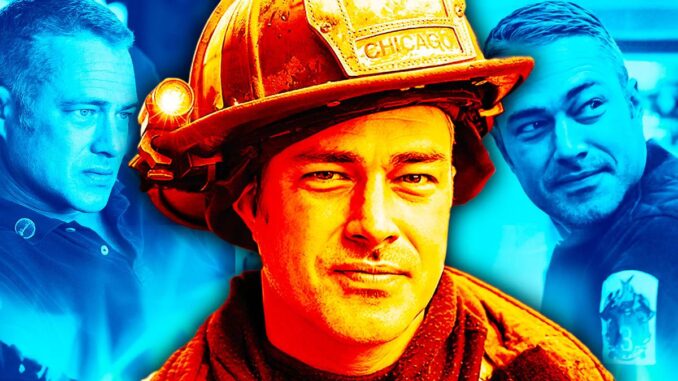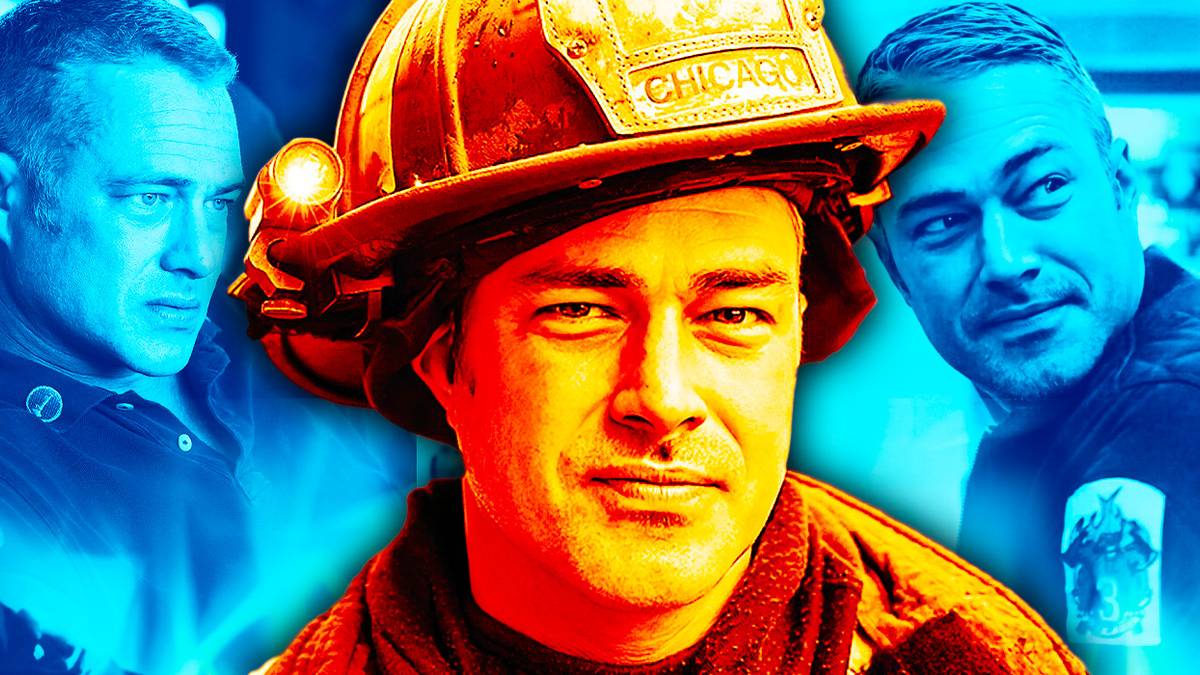
The sterile white of the hospital room felt alien, a stark contrast to the grime and chaos that Lieutenant Kelly Severide usually inhabited. The cacophony of sirens, the roar of flames, the urgent shouts of his crew – all replaced by the hushed beeping of monitors, the rustle of nurses’ scrubs, and the quiet, agonizing hum of worry. The man who routinely walked through fire, who scaled collapsing buildings and pulled lives from the brink, now lay motionless, a landscape of bandages and IV lines. His face, usually a mask of focused intensity, was pale and etched with pain, his eyes closed against a world that had, for once, refused to bend to his will.
This wasn’t just another close call, another brush with death from which Severide would dust himself off, crack a grim joke, and dive back into the fray. The severity of the accident, alluded to in hushed tones by the doctors, had landed him here, in a place where his usual brand of heroic resilience felt painfully irrelevant. Cracked ribs, a concussion, internal bruising – injuries that, while not immediately life-threatening, were enough to shatter the illusion of invincibility that often cloaked Chicago’s bravest.
His wife, Stella Kidd, a fire lieutenant herself, sat by his bedside, her hand clutching his uninjured one, her gaze a mixture of terror and fierce love. She knew the risks, lived them every day, but seeing him – her rock, her partner, the man who always seemed to defy gravity and danger – reduced to this vulnerable state, twisted a knot of fear in her stomach she couldn’t untangle. This wasn’t just about Severide’s physical recovery; it was about the aftershocks, the tremors that would ripple through their lives, through Firehouse 51, and most importantly, through Severide himself.
What’s next for Severide? The question hung heavy in the air, echoing the uncertainty that defined every high-stakes drama on “Chicago Fire.”
The Physical and Mental Gauntlet:
The immediate future, undoubtedly, involves a grueling period of physical recovery. For a man whose identity is inextricably linked to his physical prowess and his ability to perform under extreme pressure, this will be an unimaginable challenge. Will he chafe against the confinement, the forced inactivity? Will the frustration and helplessness, so antithetical to his nature, fester into something darker? The show has explored Severide’s past struggles with addiction and grief; this new trauma could easily reopen old wounds, or carve new ones.
Beyond the visible scars, there’s the unseen trauma of a major accident. The mental replay of those terrifying moments, the fear of failure, the stark confrontation with his own mortality – these are the battles he’ll fight long after his physical wounds begin to heal. Will he experience survivor’s guilt, questioning why he was spared when others might not have been? Will the very act of entering a burning building become a source of anxiety, a ghost in his mind?
The Impact on Firehouse 51 and Squad 3:
Severide isn’t just a firefighter; he’s the leader of Rescue Squad 3, the epitome of cool under pressure. His absence leaves a gaping hole, a shift in the dynamic of the firehouse. While the crew of 51 is a tight-knit family, Severide’s unique brand of leadership and expertise is irreplaceable. Who steps up in his stead? How do his colleagues cope with the fear that if Severide can fall, anyone can? The shared trauma of seeing one of their own so critically injured will undoubtedly forge new bonds, but also highlight the ever-present danger they all face. It’s a chilling reminder that no one, not even the legendary Kelly Severide, is immune.
The Future of His Career:
This is perhaps the most profound question. Will Severide be able to return to Squad 3? And if so, will he be the same Severide? Firefighting is not just a job; it’s a calling, a part of his very being. If his injuries compromise his ability to perform at the elite level required of Squad, what then? Does he face a desk job, a forced retirement, or a transfer to a less physically demanding role? The thought of Severide without the thrill of the rescue, without the camaraderie of Squad, is almost unimaginable, both for him and for the viewers. This accident could force him to confront a future he’s never contemplated, pushing him to redefine his purpose and his identity.
The Evolution of a Relationship:
For Stella and Severide, this event will be a crucible. Their marriage has weathered many storms, but few as personal and threatening as this. Stella, fiercely protective and equally brave, will be tested in new ways, balancing her role as a firefighter with her unwavering support as a wife. Will this shared trauma strengthen their bond, reminding them of the preciousness of life and love? Or will the emotional toll, the constant fear for his safety, create new fractures? The show has masterfully portrayed the complexities of their relationship; this new challenge promises to add another layer of depth and realism.
Ultimately, Severide’s hospitalization after a major accident is not just a plot device; it’s a profound exploration of vulnerability, resilience, and the true cost of heroism. What’s next for him will undoubtedly be a journey of self-discovery, rehabilitation, and potentially, reinvention. Whether he emerges from the ashes of this experience stronger, changed, or even broken, one thing is certain: the aftermath of this accident will redefine Kelly Severide, leaving an indelible mark on him and the future of “Chicago Fire.” The true fire, after all, often burns brightest within the human spirit when it is tested to its limits.
